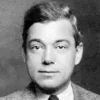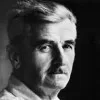The idea that people can behave naturally, without resorting to an artificial code tacitly agreed upon by their society, is as silly as the idea that they can communicate by a spoken language without commonly accepted semantic and grammatical rules.
Judith Martin (b. 1938) American author, journalist, etiquette expert [a.k.a. Miss Manners]
Common Courtesy, “On Etiquette as Language, Weapon, Custom, and Craft” (1985)
(Source)
Quotations about:
code
Note not all quotations have been tagged, so Search may find additional quotes on this topic.
There is a lot of folklore about equestrian statues, especially the ones with riders on them. There is said to be a code in the number and placement of the horse’s hooves: If one of the horse’s hooves is in the air, the rider was wounded in battle; two legs in the air means that the rider was killed in battle; three legs in the air indicates that the rider got lost on the way to the battle; and four legs in the air means that the sculptor was very, very clever. Five legs in the air means that there’s probably at least one other horse standing behind the horse you’re looking at; and the rider lying on the ground with his horse lying on top of him with all four legs in the air means that the rider was either a very incompetent horseman or owned a very bad-tempered horse.
My code of life and conduct is simply this: work hard, play to the allowable limit, disregard equally the good and bad opinion of others, never do a friend a dirty trick, eat and drink what you feel like when you feel like, never grow indignant over anything, trust to tobacco for calm and serenity, bathe twice a day, modify the aesthetic philosophy of Croce but slightly with that of Santayana and achieve fro one’s self a pragmatic sufficiency in the beauty of the aesthetic surface of life, learn to play at least one musical instrument and then play it only in private, never allow one’s self even a passing thought of death, never contradict anyone or seek to prove anything to anyone unless one gets paid for it in cold, hard coin, live the moment to the utmost of its possibilities, treat one’s enemies with polite inconsideration, avoid persons who are chronically in need, and be satisfied with life always but never with one’s self. An infinite belief in the possibilities of one’s self with a coincidental critical assessment and derogation of one’s achievements, self-respect combined with a measure of self-surgery, aristocracy of mind combined with democracy of heart, forthrightness with modesty or at least good manners, dignity with a quiet laugh, honor and honesty and decency: these are the greatest qualities that men can hope to attain. And as one man, my hope is to attain them.
George Jean Nathan (1892-1958) American editor and critic
“Self-Revelation,” Testament of a Critic (1931)
(Source)
Code is like humor. When you have to explain it, it’s bad.
Smart data structures and dumb code works a lot better than the other way around.
Eric S. Raymond (b. 1957) American software developer, writer [a.k.a. ESR]
The Cathedral and the Bazaar, ch. 2, Rule 9 (1999)
(Source)
I have found that the greatest help in meeting any problem with decency and self-respect and whatever courage is demanded, is to know where you yourself stand. That is, to have in words what you believe and are acting from.
William Faulkner (1897-1962) American novelist
Letter to David Kirk, Oxford, Miss. (8 Mar 1956)
(Source)






